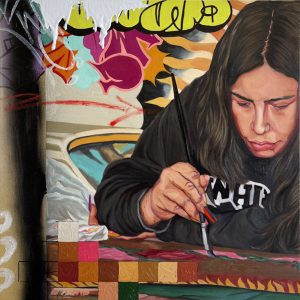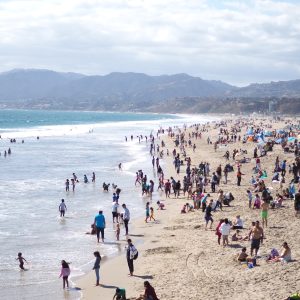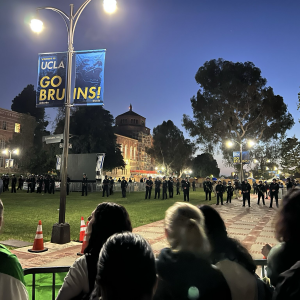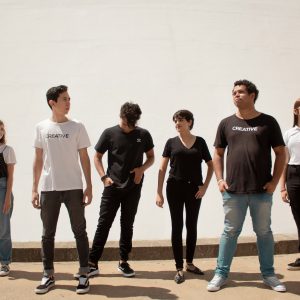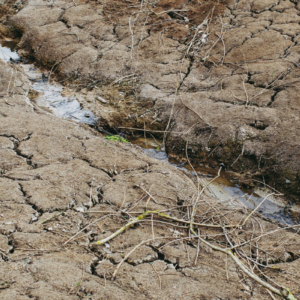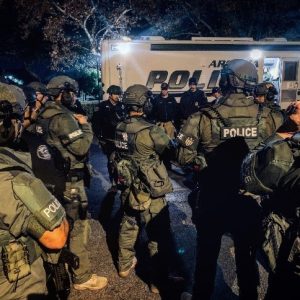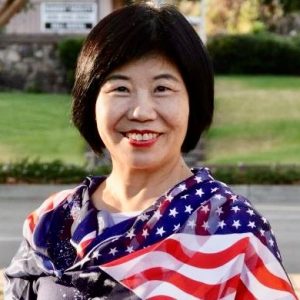 View Winners →
View Winners → Colonial Pharmacy in Arcadia Succumbs to Hex of the RX
End of an Era –
By Terry Miller
Colonial Pharmacy is unquestionably Arcadia’s oldest pharmacy and has been serving the community since 1939. Sadly, the time had come for Arcadia’s oldest purveyor of prescriptions and such to close its doors.
Colonial Pharmacy was quite literally, the corner pharmacy where you could really talk with friendly, knowledgable staff and pharmacists…a pharmacy where everyone knew your name and you weren’t just a number.
Owner Mark Burstyn has worked at Colonial Pharmacy since October 1990 and purchased the pharmacy 1999 from George Sanders. Burstyn kept the character and ambiance of Colonial and was one of only a handful of truly independent pharmacies in the San Gabriel Valley.
With the internet growing exponentially and people’s need to cut back on health care costs, destiny obviously played a significant role in Burstyn’s decision.
“People just don’t think to shop locally anymore. I always try to support my local, independent suppliers.” Burstyn said.
Burstyn has also been an avid proponent of youth sports and has nurtured and encouraged numerous Arcadia athletes over the years.
We asked Burstyn if the $4 prescription “incentive” with the big box stores was a key factor. “Sure,” he said “a little guy like me cannot compete with that….also I don’t sell milk or other things like that so I’d be losing even more money. I simply couldn’t afford to do that.”
But the decision to close was more of a conglomeration of paperwork and late insurance reimbursements. “My vendors want their money in 15 days; with the Insurances companies we’re lucky if we get paid in 30 days.”
The pain Burstyn feels is epidemic. Small businesses are losing ground rap[idly and brick and mortar shops are becoming a thing of the past in many instances or swallowed up by mega markets with huge buying power. The small independent retailer simply cannot compete with big box stores such a WalMart.
Trying desperately to hold back the tears, Mark Burstyn explained how things have changed, particularly through 07-09. “My kid’s have only known dad at this pharmacy “he said. Matt 22, and Steve 17 and wife Mary make up the Burstyn family and he has been the sole breadwinner in the family ever since graduation from Pharmacy College in 1984.
“I’ve seen patients get better and seen some die over the years. This is my extended family. You really get to know your community in this business.”
Working about 60 hours a week Burstyn was philosophical about the change he’s about to undertake.
“ 40 hours will seem like part time to me after all these years of running Colonial Pharmacy.” he quipped.
Mark Burstyn and some of his staff will be moving to Von’s Pavillions Pharmacy on March 21. The actually last day for Colonial will be March 20.
In the 1950’s many small towns had 100% employment. There were farms, there were schools, there was industry, and there were shops up and down Main Street selling all sorts of goods.
Everything in that town, from the petrol sold at the station, to the used car on the lot, to the oven in the bakery and the products coming out of the oven, to the beer sold at the bar and the juke box in the corner, and he boots on the feet of the patrons, to the pharmacy next door and the lipstick on the clerk, were made in America by Americans, and bought in America by Americans. Like a closed ecosystem, America was, at this point, self sustaining.
In the 2000’s almost everything in that small town, from the gas station, (oil from Saudi) to the car, (made in Japan) to the oven (made in Korea) to flour (milled in Jamaica) to the beer (from Germany) to the Juke Box (made in China) to the boots (made in Malaysia), to the pharmacy (drugs made in various other countries with ingredients from other countries) to the lipstick (made in China) are made elsewhere and sold all over the world.
Just as the rising collective age of Americans is leading to a need for more health care workers, the same thing is also leading to a need for more prescription drugs and those who know how to prescribe them. In addition, according to the Bureau of Labor Statistics, a growing number of pharmacies are starting to offer on-site diagnoses and patient care, stretching the amount of skilled and well-trained pharmacists needed. The demand for pharmacists and pharmacy technicians is expected to rise by over 30% in the next decade. However, that need doesn’t necessarily translate into corner pharmacies like Colonial being successful or even being able to stay afloat.
The costs incurred are too prohibitive for the small pharmacist to compete.
Colonial Pharmacy’s policy has always been “old-fashioned” PERSONAL service with a commitment to keeping current with the most recent medical developments.”
Despite Mark Burstyn’s best efforts, Colonial had little choice but to regroup. Despite Mark Burstyn’s best efforts, Colonial had to move on and will now join Pavillion’s team in Arcadia.
All prescriptions will automatically be transferred to their system so the transformation should be painless for most patients. Also Burstyn will continue to compound at Pavillions.
When visiting Burstyn’s Colonial pharmacy one can see the history, it’s full of collectibles that run the gamut from medicine bottles to scales to ‘show globes’ – large glass balls used as window displays. Literally, Colonial Pharmacy was the corner pharmacy once ubiquitous and came to symbolize small-town America.











